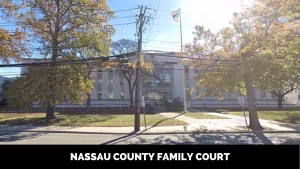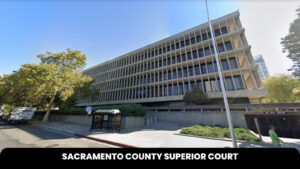North Carolina Court Dockets and Calendars
Introduction to Court Dockets and Calendars
Court dockets and calendars are integral parts of the legal system. But what exactly are they? In simple terms, a court docket is a detailed summary of a court case or proceeding, including information on the parties involved, the charges, the judge and attorneys, and the status of the case. On the other hand, a court calendar outlines the schedule of the court, detailing when particular cases will be heard.
The Importance of Court Dockets and Calendars
Court dockets and calendars play two main roles in our justice system.
Role in Case Management
Firstly, they are critical in the management of court cases. They allow court officials, lawyers, and litigants to keep track of the proceedings, including upcoming dates for hearings, trials, and other events related to a case.
Role in Public Transparency
Secondly, they promote transparency. By making these documents publicly available, the justice system provides citizens with an insight into its operations, ensuring accountability and openness.
see also Franklin County Municipal Court
Understanding the North Carolina Court System
To fully comprehend North Carolina court dockets and calendars, it’s crucial to understand the structure of the state’s court system. It primarily consists of District Courts, Superior Courts, and Appellate Courts.
District Courts
These are the trial courts of limited jurisdiction. They handle minor criminal cases, juvenile matters, and civil cases involving smaller amounts.
Superior Courts
Superior Courts are where major criminal and civil cases are heard. These include felonies and civil cases involving larger amounts.
Appellate Courts
Appellate Courts, comprising of the Court of Appeals and the Supreme Court, review the decisions of lower courts when those decisions are appealed.
How to Access North Carolina Court Dockets and Calendars
Online Access
North Carolina has embraced technology, making it easy to access court dockets and calendars online. This can be done via the North Carolina Judicial Branch’s website.
In-Person Access
Alternatively, these documents can be obtained from the clerk’s office at the courthouse where the case was filed or will be heard.
Analyzing a Court Docket
Docket Number
This is a unique number assigned to each case. It serves as an identifier and is useful in tracking a case’s progress.
Parties Involved
These are the individuals, corporations, or government agencies involved in the case.
Case Status
This indicates whether the case is ongoing, pending judgment, or concluded.
North Carolina Court Calendar
The North Carolina Court Calendar is a public record that outlines the schedule of courts across the state. It provides an in-depth look at the proceedings set to take place, including the cases to be heard, the parties involved, and the status of each case.
Benefits of the North Carolina Court Calendar
The North Carolina Court Calendar brings numerous benefits to the public and the justice system.
Transparency and Accountability
By making the court schedule available to the public, the North Carolina justice system promotes transparency and accountability. It allows citizens to gain insight into the operations of the courts and their upcoming proceedings.
Efficiency and Convenience
The court calendar also enhances efficiency and convenience. It helps court officials, attorneys, and litigants to plan for hearings and trials, thus contributing to smoother court operations.
How to Navigate the North Carolina Court Calendar
Online Access
Accessing the North Carolina Court Calendar is simple. The North Carolina Judicial Branch’s website provides a comprehensive online court calendar. You can search for calendar entries by county, date, or case type.
In-Person Access
You can also access the court calendar in person at your local courthouse. The Clerk of Court’s office typically holds these records.
NC Court Dates and Processes
The North Carolina court system is robust and well-structured, providing numerous resources for individuals seeking information about court dates, criminal court calendars, and more. Understanding these resources can be key in navigating the legal landscape.
NC Court Dates by Name
In North Carolina, you can find court dates by searching a person’s name. This feature allows you to track case progress, find out hearing dates, and see the charges and offenses against an individual.
see also Superior Court Of Arizona In Maricopa County
NC Criminal Court Calendar
The NC Criminal Court Calendar is a resource that provides scheduled dates for criminal hearings across the state’s courts. It provides transparency into upcoming cases and allows individuals to prepare for their hearings.
Court Date Lookup
North Carolina provides a court date lookup tool online. By inputting a case number or a person’s name, you can retrieve detailed information about a court date, the involved parties, and the status of the case.
How to Find Your Court Date Online
The North Carolina Judicial Branch’s website offers a tool to find your court date online. Simply input your name or case number, and the tool provides information on your upcoming court dates, case details, and any outstanding tasks or responsibilities.
NC Court Date Lookup
Similar to the general court date lookup, the NC Court Date Lookup tool provides specific information about court dates in North Carolina. By inputting necessary details, you can receive an exact date and time for your upcoming hearing.
Conclusion
Understanding and accessing North Carolina court dockets and calendars can seem daunting at first. But with this guide, it should be a little less so. They play a crucial role in our justice system, and being familiar with them ensures a more transparent and approachable legal process.
FAQs
1. What is the difference between a court docket and a court calendar?
A court docket is a record of all proceedings and filings in a case, whereas a court calendar is a schedule of hearings, trials, and other judicial activities.
2. Can I access North Carolina court dockets and calendars online?
Yes, you can access North Carolina court dockets and calendars online through the North Carolina Judicial Branch’s website.
3. What does the docket number signify?
A docket number is a unique identifier for each case, which helps track the progress of the case.
4. What is the role of the Appellate Court?
The Appellate Court reviews the decisions made by the lower courts when those decisions are appealed.
5. What types of cases do District Courts handle?
District Courts handle minor criminal cases, juvenile matters, and civil cases involving smaller amounts.





